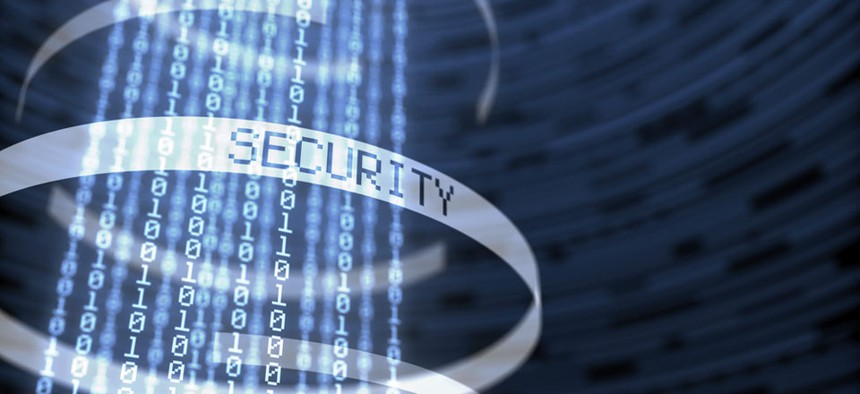White House Creates Cyber-Sharing Hub for the Federal Government

voyager624/Shutterstock.com
The $35 million cyberhub is intended to better coordinate intelligence among government agencies to ward off hacks like the one that brought Sony Pictures to its knees.
The White House on Tuesday will announce the creation of a new agency designed to combat cyberthreats and to coordinate digital intelligence among federal government agencies, an administration official said.
The Cyber Threat Intelligence Integration Center is designed to "connect the dots" among cyberthreats facing the United States, "so that relevant departments and agencies are aware of these threats in as close to real time as possible," the official said in a statement.
"No existing agency has the responsibility for performing these functions, so we need these gaps to be filled to help the federal government meet its responsibilities in cybersecurity," the official said.
The center represents the latest step in a broader push by the White House to better protect national security and corporate interests from malicious hackers, a concern that metastasized following the Sony Pictures hack last Thanksgiving. It will be formally announced by Lisa Monaco, assistant to the president for homeland security and counterterrorism, at an event at the Wilson Center in Washington this afternoon.
The $35-million agency will bypass congressional approval and be created by a presidential memorandum under authority granted under the 2004 Intelligence Reform and Terrorism Prevention Act.
President Obama has made shoring up the nation's cyberdefenses a top priority this year, a goal that was in large part spurred by the devastating Sony hack, which officials have blamed on North Korea. The president last month rolled out a legislative proposal that seeks to increase information-sharing among the government and the private sector about security vulnerabilities and potential cyberthreats.
Tuesday's announcement also previews a speech Obama will give at a cybersecurity summit at Stanford University on Friday. It is widely expected that the president will sign an executive action that will codify standards under which companies can share cyberthreat data with the National Cybersecurity and Communications Integration Center, a separate so-called "cyberhub" housed at the Homeland Security Department.
Both Obama and Republicans have repeatedly identified cybersecurity as one of a handful of important policy arenas where substantive bipartisanship is achievable this year. But aside from a few hearings, Congress has not yet moved forward on a so-called information-sharing proposal, and some lawmakers have indicated they view Obama's proposal as more of a reference point than a road map.
Privacy advocates are also wary about information-sharing, having warned for years that giving the government more doors through which to access user information could expand its surveillance capabilities—a refrain that has only grown louder since the Edward Snowden disclosures. Many groups have said they will not support any information-sharing legislation if Congress does not first reform the National Security Agency's domestic spying authority.
Some immediately viewed the new center as duplicative of the DHS cyberhub, but worried that its placement within the intelligence community could pose additional privacy risks.
"We have all of this disparate activity going on in the current government structure and instead of getting that in order and making our organization efficient and meaningful, we are now added another layer of bureaucracy," said Amie Stepanovich, senior policy counsel with Access, a digital-rights group. "It's ostensibly creating a new surveillance program. It's just going to be another confusing layer of surveillance structure that people are going to be subjected to."
But Obama is indicating he plans to move forward on cybersecurity, and his actions this week are likely intended to cajole Congress into moving more quickly on what the president has called a critical national security need.
The White House said the Cyber Threat Intelligence Integration Center, which will be part of the Office of the Director of National Intelligence, is "still being stood up" but that it anticipates an initial staff of about 50, to be culled from across departments and agencies.
Administration officials likened the new agency to the National Counterterrorism Center, an earlier iteration of which was formed in 2003 in part to improve the government's collection and dissemination of vital terrorism intelligence. Like the new cybercenter, the National Counterterrorism Center was in part a response to a seismic event: The 9/11 Commission recommended its formation following its investigation into the September 11 terrorist attacks.
(Image via voyager624/Shutterstock.com)






